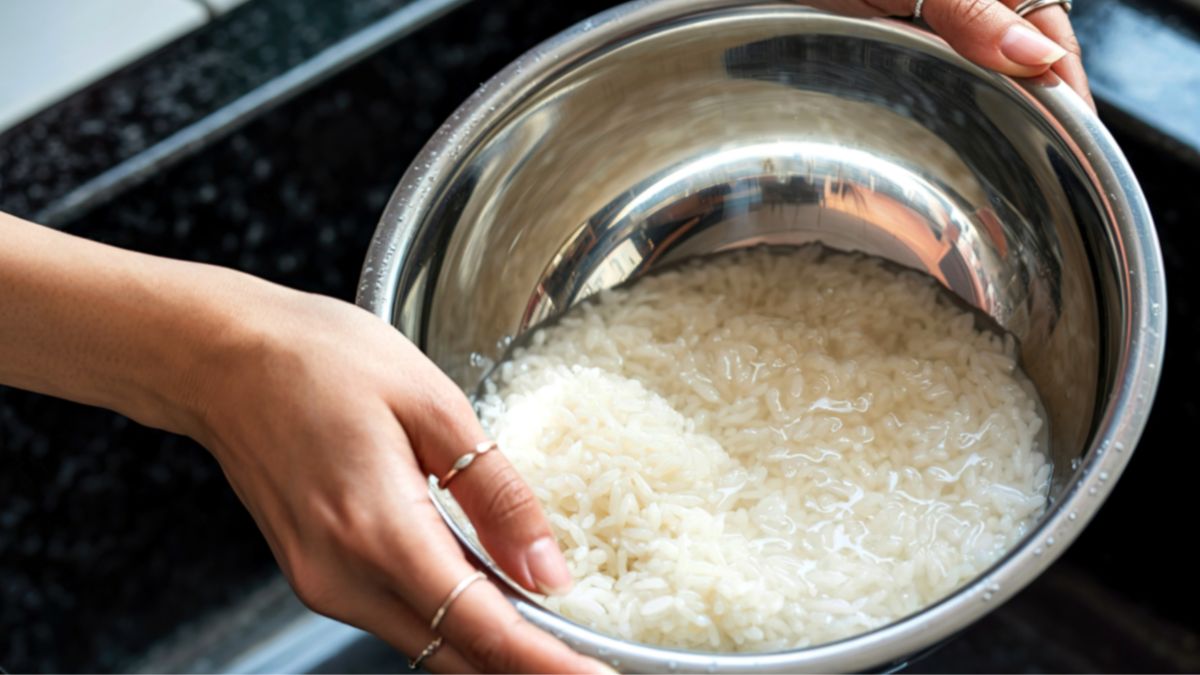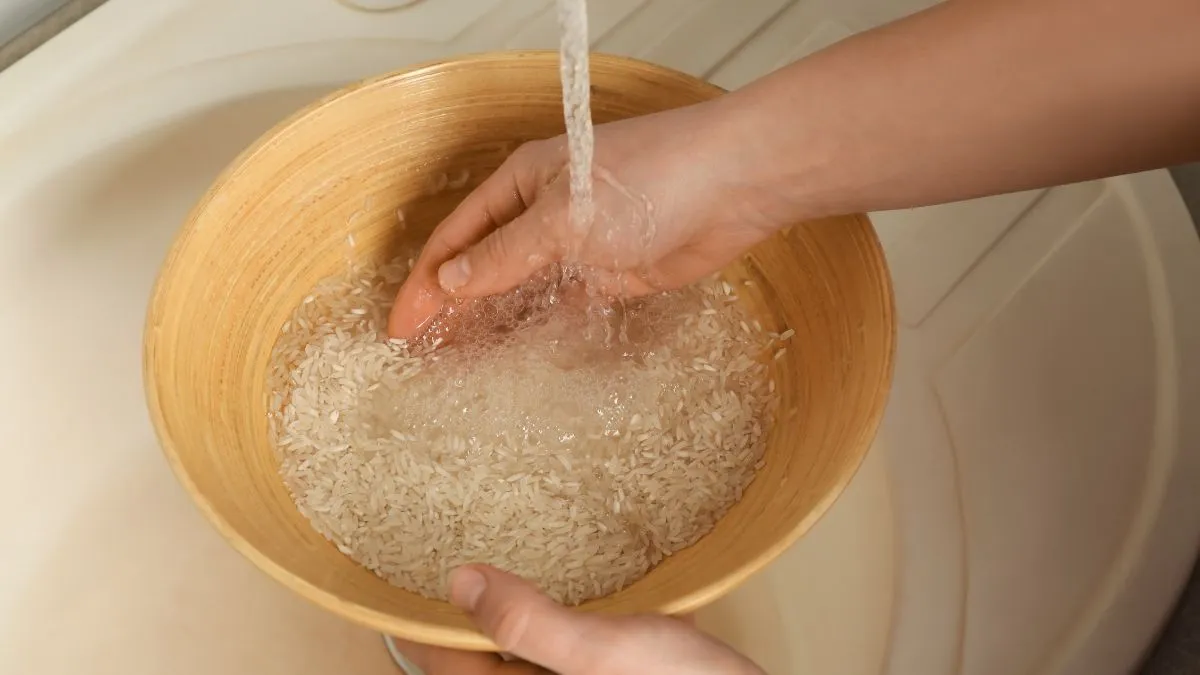- By Iram Hussain
- Thu, 18 Sep 2025 03:50 PM (IST)
- Source:JND
Rice is the building block of Indian cuisine with a variety of favourite dishes, like aromatic biryani, simple but comforting khichdi and, of course, dal-chawal. But, how many times should one rinse rice? This common question arises among many home cooks who simply want to ensure the best results for their meal. Rinsing rice is a vital step in Indian kitchens because it not only improves the quality of the rice but also affects its texture and aroma and ultimately the taste.
In many ways, proper rinsing contributes to the final character of a rice dish as it removes excess starch, dust and other manufacturing by-products all of which can lead to rice that is clumpy and sticky if not rinsed properly. Here are some easy steps that you must follow to rinse your rice properly for that perfect fluffy grain.
How Many Times Should You Rinse Rice?
Rinsing a few times is recommended for most Indian rice. For Basmati and other long-grain rice varieties, three to four rinses should make it fluffier. Conversely, you may want to minimise rinsing with short-grain or sticky rice in order to retain some starch for texture. Always consider rinsing until the water is clear or nearly clear for best results.
ALSO READ: US Doctor Reveals The Best Method To Remove Pesticides From Fruits
How To Wash Rice Properly?
Measure And Add Rice In A Bowl: Use a clean bowl which can be used for rinsing rice.
Add Water And Agitate The Rice: Agitate rice with fingers, washing off the layers of starch.

Tips to wash the rice peoperly (Image Credits: Canva)
Pour Out Milky Water: Pour out the water carefully and do not lose any of the rice grains.
Repeat The Rinse: Add in fresh water and repeat this process two to three times, or until most of the water is clear.
(Optional) Soak The Rinsed Rrice: For better texture, soak drained rice for 20–30 minutes before cooking, particularly basmati rice which can help soften the rice.
ALSO READ: 6 Genius Ways To Reuse Boiled Rice Water That Are Actually Worth-Trying
Common Mistakes To Avoid
Avoid rinsing the rice too much; too much rinsing will wash away essential nutrients and aroma, leaving your rice white and bland.
Rinse your rice in cold water; this helps protect the delicate grains and prevents breaking of the grains which helps to ensure fluffy and separate grains.
Rinse according to the type of rice; some rice like biryani rice needs thorough rinsing while khichdi barely needs any rinsing at all.
